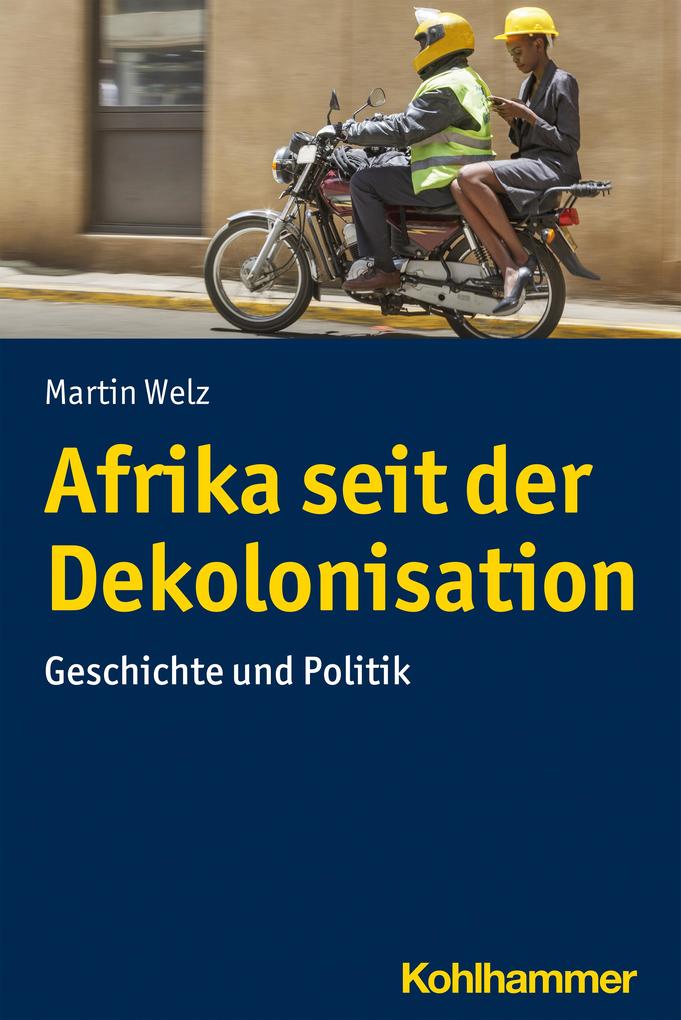
Sofort lieferbar (Download)
Africa is a continent with an eventful history that currently has a population of more than 1.2 billion, in 54 recognized states. It is shaped by different cultures, languages and religions. Some of the states have gone through crises and conflicts, others are rooted in tradition and ancient customs, while yet others have opened up towards modern economic and socio-economic trajectories. Overall, Africa is currently confronting a number of serious problems. The continent is still facing tremendous challenges even today & in creating the conditions for a peaceful community, providing all citizens with access to education, medicine and hygiene care, and in improving housing and living conditions.
In twelve chapters, Martin Welz presents Africa=s remarkable diversity and calls into question clichés and stereotypes by focusing on African and non-African protagonists and structural conditions. Among other things, he vividly illustrates the stages that were involved in decolonization and their effects on today=s societies. He describes external influences on Africa and the political characteristics and systems in the individual states. The author thus opens up a broad panorama over Africa=s historically based situation and provides the reader with a rapid and well-founded overview of the current social and political situation on the entire continent.
Horst Köhler (President of Germany, 2004&2010) commented on the book: ?Martin Welz=s book is like a mosaic: up close, you can see all the details and differences, ranging from geography and history to the formative personalities of the countries of Africa that were once shaped by colonial despotism. But when you finish the book and step back, you=re able to see the major connections and structures. Anyone wanting to understand the history and politics of Africa since decolonization and get to know the diversity of the continent better should read this book.=
In twelve chapters, Martin Welz presents Africa=s remarkable diversity and calls into question clichés and stereotypes by focusing on African and non-African protagonists and structural conditions. Among other things, he vividly illustrates the stages that were involved in decolonization and their effects on today=s societies. He describes external influences on Africa and the political characteristics and systems in the individual states. The author thus opens up a broad panorama over Africa=s historically based situation and provides the reader with a rapid and well-founded overview of the current social and political situation on the entire continent.
Horst Köhler (President of Germany, 2004&2010) commented on the book: ?Martin Welz=s book is like a mosaic: up close, you can see all the details and differences, ranging from geography and history to the formative personalities of the countries of Africa that were once shaped by colonial despotism. But when you finish the book and step back, you=re able to see the major connections and structures. Anyone wanting to understand the history and politics of Africa since decolonization and get to know the diversity of the continent better should read this book.=
Mehr aus dieser Reihe
Produktdetails
Erscheinungsdatum
18. November 2020
Sprache
deutsch
Seitenanzahl
301
Dateigröße
4,48 MB
Reihe
Ländergeschichten
Autor/Autorin
Martin Welz
Verlag/Hersteller
Kopierschutz
mit Wasserzeichen versehen
Family Sharing
Ja
Produktart
EBOOK
Dateiformat
EPUB
ISBN
9783170327894
Entdecken Sie mehr
Bewertungen
0 Bewertungen
Es wurden noch keine Bewertungen abgegeben. Schreiben Sie die erste Bewertung zu "Afrika seit der Dekolonisation" und helfen Sie damit anderen bei der Kaufentscheidung.


















